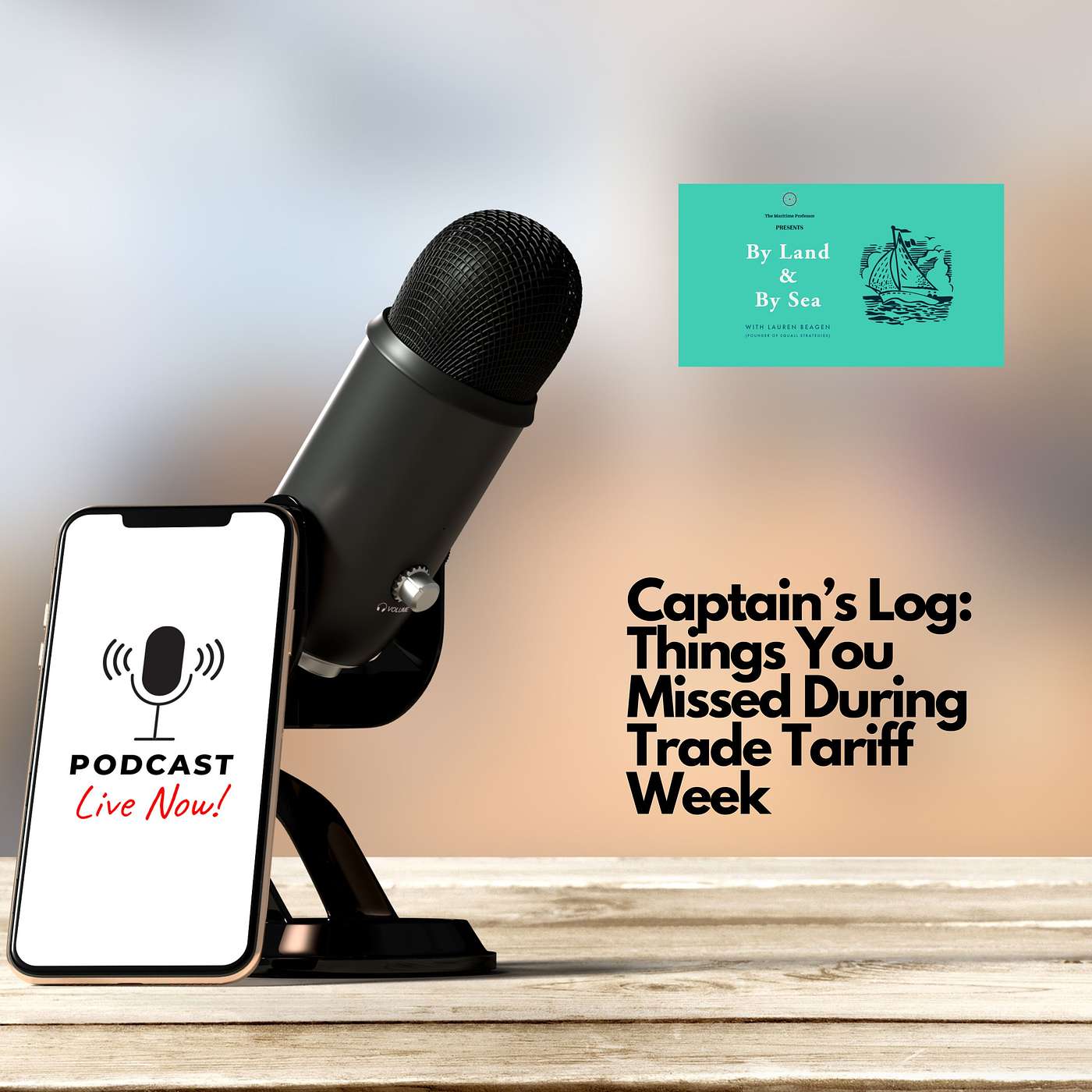When Trade Shifts, Data Steers: Lessons from Quebec City (AAPA Convention)
Description
This week’s episode connects the dots between ports, policy, and technology — from new AI cargo safety tools to China’s retaliatory port fees and the U.S.–Finland icebreaker deal. Fresh off the AAPA Annual Convention in Quebec City, Lauren breaks down how smart strategy means more than new tech — it’s about translation, visibility, and human insight.
Expanded Description:
In this week’s episode of By Land and By Sea, The Maritime Professor®, Lauren Beagen, unpacks a fast-moving week in global shipping and supply chain strategy.
From AI scanning for dangerous goods to digital standards and tariff-driven behavior shifts, Lauren explores how data, design, and diplomacy are reshaping maritime operations — and why “smart strategy” means understanding the human element behind it all.
⚓ AI cargo safety: The National Cargo Bureau and World Shipping Council launched a partnership using artificial intelligence to detect misdeclared or dangerous goods before loading — a major leap in predictive safety.
💸 Tariff enforcement: The DOJ sentenced executives in the L.A. fashion district for evading $19M in customs duties — a reminder that data integrity equals compliance integrity.
🧩 DCSA digital standards: The Digital Container Shipping Association launched its new standard conformance page— and now you can check carrier adoption directly on their conformance grid, covering Track & Trace, eBLs, and booking data (https://dcsa.org/standard-conformance)
🇨🇳 China’s retaliatory port fees: A mirror response to U.S. Section 301 tariffs, China imposed special port fees on U.S.-linked ships, starting at 400 yuan per net ton and rising to 1,120 yuan by 2028.
🚢 Industry workarounds: Bloomberg via gCaptain reports carriers are reflagging and rerouting to minimize tariff exposure — a clear sign that the policy is influencing fleet behavior, just as intended.
❄️ U.S.–Finland icebreaker deal: The U.S. approved a major collaboration with Finland to build 11 new icebreakers, bolstering Arctic access, Great Lakes operations, and allied shipbuilding capacity.
From Quebec City to Washington, the message is clear:
The maritime world isn’t just collecting data — it’s learning to translate it into action.
🎧 Episode: When Trade Shifts, Data Steers: Lessons from Quebec City (AAPA Convention)
👉 Listen now at www.TheMaritimeProfessor.com/podcast
💡 Takeaway: The future of maritime strategy isn’t about more data — it’s about better translation, visibility, and connection.
⚠️ As always, this content is for educational purposes only and should not be considered legal advice. If you need an attorney, contact an attorney.
#m
🎙️ Thanks for tuning in to By Land and By Sea powered by The Maritime Professor®! If you enjoyed today’s episode, be sure to subscribe ⭐ and leave a review 📝 - it really helps others find the show.
📚 Want to go deeper? Check out our live webinars, on-demand e-courses, and our Just-in-Time Learning™ sessions -- short, plain-language lessons (30 minutes or less) built for supply chain pros who need quick clarity.
🚢 Looking for something tailored? We also provide custom corporate trainings designed to meet your team’s needs.
⚓ Learn more and explore past episodes at: www.TheMaritimeProfessor.com/podcast










